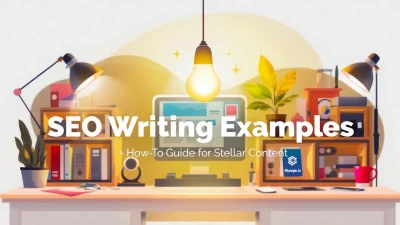Imagine steering your website to the top of search engine results with the precision of an Olympic archer. That’s the power of SEO targeting. As digital landscapes evolve, mastering this art is no longer optional—it’s essential. Whether you’re a seasoned developer or a marketer eager to amplify your reach, understanding how to pinpoint and capitalize on the right targets can catapult your success further than ever imagined.
In this guide, we’ll delve into the core strategies of SEO targeting, unveiling techniques that transform vague goals into precise, rank-boosting actions. Ready to hit your SEO bullseye? Let’s dive into the essentials that will set you on a path to outperform your competition and maximize your digital visibility.
Table of Contents
- Grasping the Basics of SEO Targeting
- Identifying Your Target Audience
- Conducting Keyword Research
- On-page Optimization Techniques
- Leveraging Content for SEO Targeting
- FAQs
- Conclusion
Grasping the Basics of SEO Targeting
Diving into the world of SEO targeting can feel overwhelming, but understanding the basics is essential. This foundational knowledge sets the stage for mastering precision and elevating your site’s visibility. Let’s break it down and demystify this process.
What is SEO Targeting?
At its core, SEO targeting is about selecting the right target keywords to reach your audience effectively. The magic happens when you resonate with users’ search intents, drawing them directly to your site. Imagine casting a net precisely when and where the fish swim; that’s how SEO targeting works.
How to Identify Target Keywords
- Analyze Your Audience: Understanding who your audience is can help pinpoint the right keywords. Explore their demographics, interests, and search behaviors. For further insights, check our guide on SEO and Content Marketing.
- Use Keyword Tools: Utilize tools like SEMrush for assessing keyword difficulty and search volume.
- Check Competitors: Learn what keywords competitors target. By understanding their strategies, you can identify opportunities or gaps.
Want to learn more about how to perform keyword research effectively? Visit HubSpot’s comprehensive guide for excellent insights.
Mastering SEO targeting can significantly boost your site’s ranking, making it more discoverable to potential users.
Precision in SEO targeting isn’t just a strategy; it’s an art. Effective keyword selection can catapult your content into visibility, enhancing your digital footprint.
Identifying Your Target Audience
Mastering SEO targeting starts with knowing who you’re speaking to. Your target audience forms the bedrock of any successful digital strategy, providing direction and focus for your content.
- Analyze Demographics: Begin by understanding your audience’s demographics. Look at age, location, language, and even income levels. These insights guide your target keywords and messaging.
- Understand Interests and Behaviors: Tools like Google Analytics help you delve into what your audience searches for online. Are they tech enthusiasts or lifestyle mavens? This information shapes your SEO targeting approach.
- Use Social Media Insights: Platforms like Facebook and Instagram offer valuable data on user interests. Tap into these insights to refine your target keywords and content strategy.
- Conduct Surveys and Feedback Sessions: Engage your audience directly through surveys or feedback. Their firsthand insights can reveal unexpected interests or pain points, helping perfect your strategy.
By identifying your audience, you tailor content that resonates, boosting engagement and rankings.
Advanced Research Techniques
Leverage advanced SEO tools such as SEMrush or Keyword Hero to uncover deep insights about your target audience’s online behavior. These tools offer features like keyword difficulty checks and competitive analysis.
Remember, precision in audience identification leads to higher rankings and better returns on your marketing efforts.
Conducting Keyword Research
Have you ever wondered how to hit the bullseye with your SEO targeting? The answer lies in mastering keyword research. This step-by-step guide will walk you through the crucial process of finding and using the right target keywords to skyrocket your website traffic.
- Start with Brainstorming: Gather a list of possible words and phrases related to your niche that potential visitors might use to find your content. This is your starting point for effective keyword research.
- Use Keyword Research Tools: Leverage powerful tools like Keyword Hero and SEMrush to expand your list with variations and long-tail keywords. These tools provide insights into search volume, competition, and even help you spot trends.
- Analyze the Competition: Understand what your competitors rank for. This can offer valuable insight into which target keywords you might also aim to rank for. It also helps identify opportunities to stand out in terms of content quality or angle.
- Refine with Intent: Focus on what your audience is truly seeking. After all, the right keywords must align with user intent to drive relevant traffic. Ensure each keyword serves a precise purpose and meets user needs, as detailed in our SEO and Content Marketing Guide.
- Organize and Prioritize: Create categories based on priority and search intent. This structured approach eases content planning and optimization, ensuring each piece of content has a clear target.
By combining these strategies, you can refine your SEO targeting, creating a pathway for hitting those coveted top search rankings. Remember, effective keyword research isn’t a one-time task but a continuous cycle of refinement.
Precision in choosing the right target keywords can dramatically impact your SEO success.
On-page Optimization Techniques
Maximizing the impact of your SEO targeting isn’t rocket science, but it does require precision. To truly master rank boosting, you need to nail on-page optimization techniques. Let’s dive into how you can effectively tailor your web content for better search visibility.
- Optimize Your Title Tags and Meta Descriptions: Incorporate target keywords naturally into your title tags and meta descriptions. This helps search engines understand your page’s content and improve click-through rates.
- Utilize Header Tags Wisely: Framework your page content with
<H1> to <H3>tags to structure your information. This isn’t just for aesthetics; it aids SEO targeting by indicating priority to search engines. - Enhance Content Quality: Your content isn’t just a placeholder for keywords—it’s a vehicle for delivering value. Make sure your material is informative, engaging, and matches user intent.
- Implement Internal Linking Strategically: Create a web of relevance by linking to other valuable resources on your site. Check this guide to master SEO and content marketing for insights into maximizing impact.
- Optimize Images with Alt Text: Images round out your content experience. Use descriptive alt text with seo targeting focus to ensure search engines can comprehend what the audience sees.
These on-page techniques for seo targeting form the foundation of any successful campaign. By focusing on high-performing target keywords and enhancing all elements on each page, you push your site closer to the coveted top rankings.
Advanced On-page Techniques
Consider embracing schema markup to provide search engines with context about your content. Explore more by understanding the intricacies of targeted keywords that lead to better relevance.
Key benefit of using seo targeting is a clear path to enhanced visibility and user engagement.
Stay updated with keyword research practices for further refinement.
Leveraging Content for SEO Targeting
In today’s digital landscape, leveraging content for SEO targeting is vital to mastering rank boosting. But how exactly do you achieve that? Let’s dive into how to harness your content for maximum impact.
- Identify Your Target Keywords: Start with thorough keyword research. Use tools like HubSpot’s keyword research guide to pinpoint target keywords that will resonate with your audience.
- Create Quality Content: With your target keywords in hand, focus on creating engaging, high-quality content. This is where the magic happens, transforming mere words into compelling stories.
- Optimize Strategically: Integrate your keywords naturally within headings, subheadings, and throughout the body text. Tools like Keyword Hero’s guide can assist in fine-tuning your approach.
- Monitor and Adjust: Once your content is live, continuously monitor its performance. Use insights from platforms like SEMrush to refine your strategy for ongoing success.
Using SEO targeting effectively can transform your digital presence, resulting in a noticeable surge in rankings and visibility. Don’t just create content – create opportunities.
FAQs
What is SEO Targeting?
SEO targeting involves strategically focusing on specific target keywords to rank higher in search engine results. By understanding the search intent and using the right keywords, you can effectively connect with your audience.
How do I choose the right target keywords?
Choosing the right target keywords requires understanding your audience’s needs and conducting thorough keyword research. Consider using tools like SEMrush or Google’s Keyword Planner for insights.
Why is SEO targeting important?
SEO targeting helps in connecting with the right audience and boosting your website’s visibility. Proper targeting ensures that your website appears in relevant searches, attracting more qualified leads.
Can I change my target keywords?
Absolutely! SEO is dynamic, and adapting your target keywords based on trends and audience needs is crucial for staying competitive.
What tools are best for SEO targeting?
There are several tools for effective SEO targeting, including Google Analytics, SEMrush, and Moz. These tools provide valuable insights to enhance your strategy.
For more information on mastering digital success, check out our SEO and Content Marketing guide.
Conclusion
Mastering SEO targeting requires a blend of art and science. By focusing on target keywords strategically, you pave the path for precise rank boosting. This journey involves an ongoing commitment to adapting to search engine algorithms, refining your understanding of audience intent, and adjusting your keyword research strategies.
Consider your target keywords as a guiding compass, leading your content to the right audience at the right time. Resources such as focused guidance on targeting keywords and analytical tools are crucial in this endeavor. These will empower you to dissect keyword performance and optimize your digital footprint effectively.
Key benefit of using SEO targeting is unparalleled precision in reaching your ideal audience.
Remember, SEO targeting is not a one-time task but a continual process that evolves with the dynamic digital landscape. Explore further insights and strategies in our detailed keyword research guide to enhance your approach and maintain an edge over competitors.



